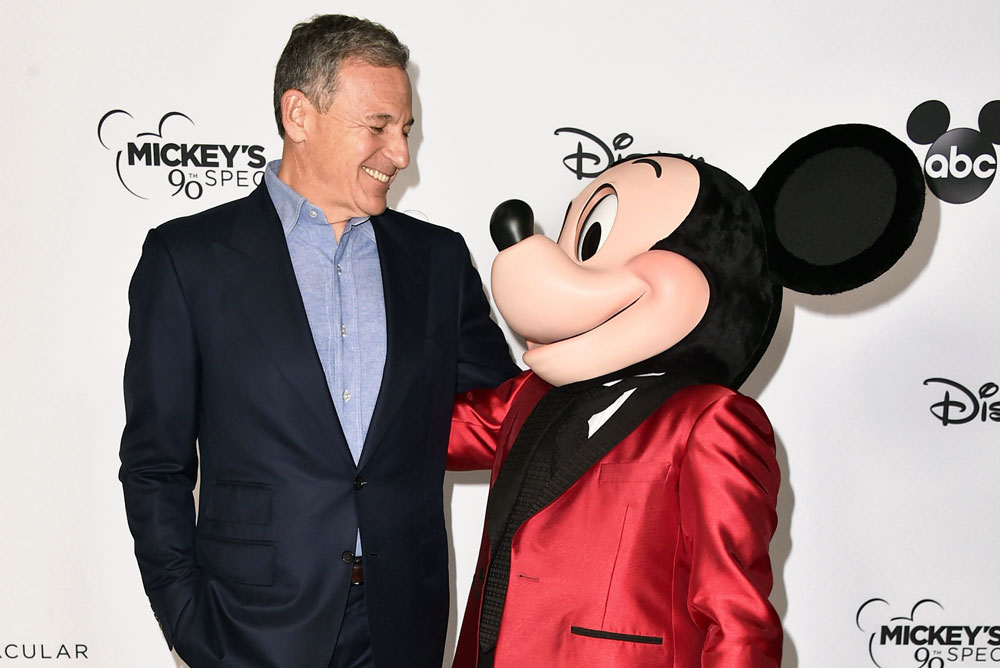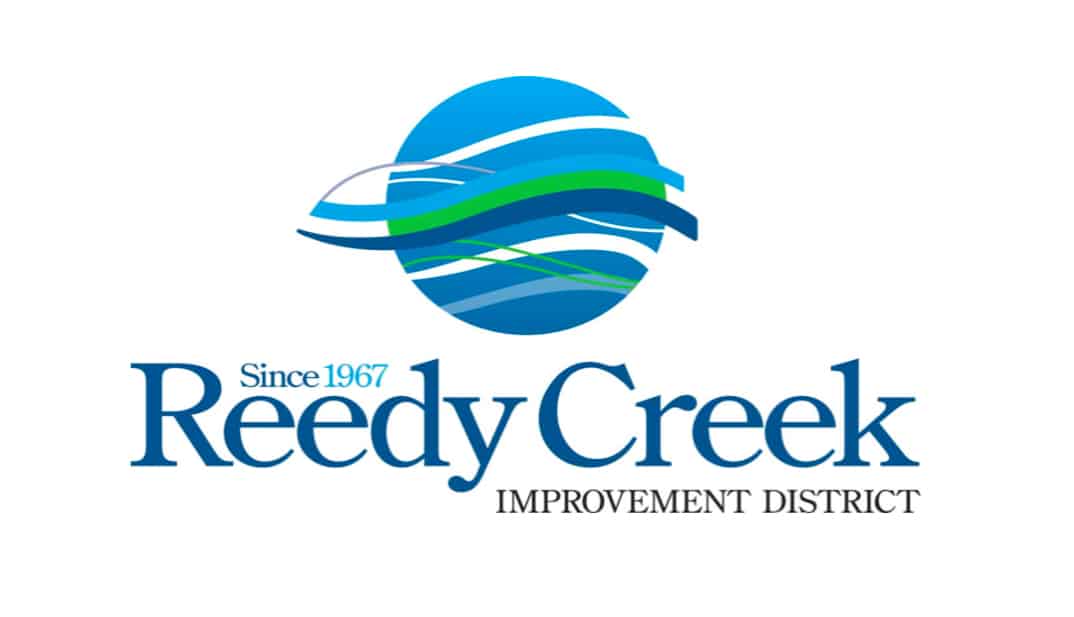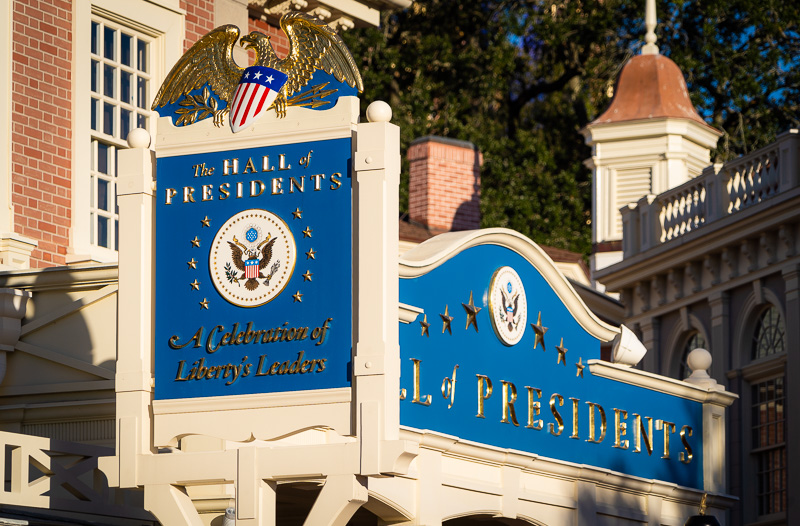Disney World’s Reedy Creek Improvement District Likely Not Going Away
In a twist that no one could’ve seen coming (wink wink), it now appears unlikely that Florida will actually dissolve Reedy Creek Improvement District (RCID), which gives Walt Disney World its own government within Osceola and Orange County. This post takes a look at what’s happened, what’s likely to happen next, and how the latest developments compare to our past predictions.
If you want to be quickly brought up to speed on the saga from this spring, please read our prior post: Florida Passes Bills to Dissolve Reedy Creek Improvement District. That covers what led to the legislation, when the dissolution would take effect, and how it would impact Walt Disney World guests.
In the last week, there have been major new developments in this story and we’ve received reader questions and renewed interest in this issue with the return of CEO Bob Iger. As before, I’ll attempt to break this down in a straightforward manner, free of hyperbole and sensationalism. Hopefully this second article will suffice, and we won’t have to address the topic of Reedy Creek again. (Save for a small update when all of this is confirmed.)
Last week, Bob Iger returned to running the Walt Disney Company, and held an employee and Cast Member Town Hall. During that, he said that “inclusion and acceptance and tolerance” are among the “core values” of the company’s storytelling, citing films like Black Panther and Coco as examples that have had a “meaningful, positive impact” and “changed the world for good.”
More to the point, Iger was asked about the Reedy Creek dissolution, and responded: “I was sorry to see us dragged into that battle, and I have no idea exactly what its ramifications are in terms of the business itself. What I can say is that the state of Florida has been important to us for a long time, and we have been very important to the state of Florida. That is something I’m extremely mindful of and will articulate if I get the chance.”
Iger further indicated that he felt there was a “misperception” about what being political meant with regard to Disney. “I don’t think when you are telling stories and attempting to be a good citizen of the world that that’s political,” Iger stated. “Some of the subjects that have been proven to be controversial as it relates to Disney have been branded political, and I don’t think they are.” In concluding his response to this question, Iger stated that he didn’t like the company “being embroiled in controversy.”
Florida state lawmakers have also seized on the opportunity of the change in CEOs to turn the page on the controversy, or so it would seem. According to a report in the Financial Times, the two sides are working on a compromise that would allow Disney to keep the Reedy Creek Improvement District in place, albeit with a few modifications.
Randy Fine, the Republican lawmaker who drafted the law to dissolve RCID, said Chapek’s removal from executive office last week improved the chances that “something will get sorted out” over the district. “It’s easier to shift policy when you don’t have to defend the old policy,” Fine said. “Chapek screwed up, but Bob Iger doesn’t have to own that screw-up.”
An influential figure in Florida state politics told FT that Iger struck the right tone for reaching a compromise in the aforementioned Cast Member Town Hall. “That was a good olive branch message to Disney employees and the state of Florida,” he said. “It was a diplomatic kind of message.”
Meanwhile, tax officials and lawmakers have warned dissolving Disney’s private government threatens to shift an enormous financial burden to taxpayers and potentially transfer a $1 billion debt load to the state. The Reedy Creek legislation was drafted hastily this spring, coming together as state lawmakers made headlines for attacks on the state’s largest employer. This was unprecedented, as Disney’s economic might, political campaign donations, and powerful team of lobbyists have enabled the company to wield strong influence on state politics for the last 50-plus years.
Since then, circumstances in Florida and inside the Walt Disney Company have changed. Chapek was fired by the company’s board of directors and Iger, who ran the company for 15 years and is a known quantity in Florida, is back in the job. DeSantis handily won reelection as Florida governor in November, propelling him to the front of the pack for the 2024 Republican presidential nomination.
This has presented Disney and Florida a golden opportunity to reconcile, and not head further down a road that would ultimately prove damaging to both sides.
One potential compromise under discussion would bar Walt Disney World from building a nuclear power plant or an airport on the property, rights granted to the Reedy Creek Improvement District by Florida in 1967 that it is unlikely to use. (Stranger things have happened, but it seems pretty unlikely at this point that Disney wants to get into the nuclear energy business!)
More significantly for DeSantis, there is also discussion of allowing the governor to appoint two members to the RCID board. “These compromises can be done with the least amount of impact,” Linda Stewart, a state senator representing part of Orlando, told the FT. “We can’t let the governor look like he lost.”
At present, the law dissolving Reedy Creek Improvement District and 5 other special districts will go into effect on June 1, 2023 if no further action is taken before then. Even after, there’s still a chance for RCID to be reestablished. This gives the parties time to negotiate, which is exactly what is happening behind the scenes according to FT sources. A draft compromise bill is currently being drawn up by a Republican state senator, lawmakers say.
“It seems like Disney and the legislature have motivation to make a deal. Nobody wants a train wreck,” said a source involved in Florida politics who asked not to be named. Disney declined to comment on the reporting, as did a spokesperson for Reedy Creek Improvement District.
In a statement to NBC News (and in a flurry of social media posts), a spokesperson for DeSantis said the governor “does not make U-turns.” (A shot meant to contradict the title of the Financial Times article, but not its substance. As always, so much of politics is in optics.)
“The governor was right to champion removing the extraordinary benefit given to one company through the Reedy Creek Improvement District,” the governor’s office said. “We will have an even playing field for businesses in Florida, and the state certainly owes no special favors to one company. Disney’s debts will not fall on the taxpayers of Florida. A plan is in the works and will be released soon.”
When it comes to commentary, I want to start with this line from our original post discussing the dissolution of Reedy Creek Improvement District: “In short, I don’t think this will have any material impact on the guest experience at Walt Disney World. That’s because I don’t think Reedy Creek Improvement District will actually be dissolved when all is said and done.”
A lot more commentary follows, and then this: “One could argue that this is because no legislator on either side of the aisle actually believes Reedy Creek Improvement District is going to be dissolved. Perhaps they’re cynical, thinking that it’s more about theater, a way to score a quick ‘win’ in today’s era of ‘politics as team sports’ and the ongoing culture wars. Maybe it’s a means of grabbing headlines, dominating the news cycle, and fundraising for midterms before moving on to the next outrage du jour that fuels each side’s base long before next summer.”
My opinion remains unchanged since then. Passing the bill to dissolve Reedy Creek Improvement District was advantageous political theater this past spring, but the circumstances have changed since. The midterm elections are over, the underlying controversy is no longer making headlines, and whatever benefit there was in challenging a powerful company has mostly run its course.
Equally as important, I think that the Walt Disney Company and Bob Iger understand the political landscape in Florida for the next couple of years, and are cognizant of the consequences of being embroiled in this and other controversy. Part of Chapek’s miscalculation was approaching this with a conventional understanding of politics and power dynamics, as informed by decades of doing business in the state.
Of course, this was not Chapek’s only mistake. His whole approach to the controversy was comedy of errors, remedying mistakes with even more mistakes, and managing to alienate literally everyone on the political spectrum in the process. Chapek’s blundering of this situation will be studied in political science textbooks in the decades to come as a lesson in what not to do.
No one listened to what Chapek had to say and thought, “this sure was handled well and to my satisfaction.” To his credit, Chapek was highly successful in uniting both sides in disdain for him. A rare and impressive feat, to be sure!
On a tangentially-related note, one element of the ‘Battle of the Bobs’ that has been amusing to me is the comments that Chapek was too political (and the more colorful variations of that). Of the two, Iger is unquestionably more political. He’s been transparent with his views and political ambitions, even flirting with the idea of running for president.
Chapek made the political decisions he felt were right for the company, but it was strictly business–not emotionally or ideologically-driven. He hasn’t made his personal positions public, but he’s from the Midwest and definitely is not the typical Hollywood type. (Even more tangential, but I’m honestly surprised that Chapek never used his personal story or positioned himself as a Hollywood outsider. As we’ve discussed, he was not a charismatic storyteller, but he probably could have endeared himself to Disney’s core audience by leaning into the down-home, Midwestern persona.)
Bob Iger may be more transparent with his views, but he’s also a better politician. Which is to say that he can switch gears with ease, moving past his own values to negotiate and reach favorable outcomes for all. (I don’t know about Iger being president, but he would be an asset to the United States as an ambassador–and one who could be appointed by either party.)
His answer with regard to Florida politics during the Cast Member Town Hall was a master class in this. No matter which side of the political aisle you stand, that answer could have made you feel good about the future. (Unless you’re a hardcore partisan who is grasping at straws, searching for controversy and conflict.)
Iger has a diplomatic way of doing business, making everyone feel heard and their perspective valued. He has a way of compromising that makes everyone come away feeling like they’ve won–or at least, not conceded too much. The outcome here is at least partially a result of that, with the other part being that the controversy has run its course and now is a convenient time to undo the dissolution, especially with Chapek ousted.
Going forward, Iger will need to tread carefully. Although this controversy appears that it’ll soon be over, this isn’t necessarily the end of the story–only the closing of one chapter. While we attempt to steer clear of politics here, I don’t think it’s any secret or even remotely controversial to say that Florida Governor Ron DeSantis likely has presidential aspirations.
It’s also no secret that culture wars are great fodder for media headlines and fundraising, serving up red meat for each party’s hyper-partisan base. DeSantis has raised his national profile tremendously in the last year with exactly this approach. It’s unclear to what extent he’ll continue to engage in this type of practice or will pivot–it likely depends upon what he needs to win the primary versus general election. It’s also possible that the Florida-Disney confrontation is old news or that being perceived as a dealmaker offers more value to DeSantis at this point.
To be clear, this is not a value judgment about DeSantis. Both parties engage in this behavior to rile up their bases, fundraise, and garner mainstream (and not-so-mainstream) media coverage. I do think it’s unfortunate that the most politically-active Americans care less about substantive policy making and kitchen table issues that actually impact their daily lives, but that’s the nature of the beast. (As always, I’ll withhold my personal politics, which would probably alienate most of you–in large part because I care more about wonkish issues than all of this.)
Ultimately, my expectation is that the Walt Disney Company and State of Florida reach a compromise that enables everyone to “win” in before the clock strikes midnight on June 1, 2023. It’ll be an outcome that allows state legislators and Governor DeSantis to claim victory, both in the ouster of Chapek and in modifying the RCID to reduce its power and increase oversight of the district.
It’ll also make Bob Iger look like a successful negotiator, taking the concerns of Cast Members and the State of Florida to heart. In the end, the Reedy Creek Improvement District will not be dissolved–that was a highly unlikely outcome even if Chapek stuck around, but now it’s an absolutely foregone conclusion.
However, I also wouldn’t expect to hear much boasting by Bob Iger about the outcome. That only opens the door for more criticism and controversy, and if Iger has learned anything from Chapek’s missteps, it should be that Disney will never get the last word on the subject.
To that point, many of you have asked what I think will happen with the Disney and Florida controversy under Iger. My guess is that more of the lobbying and deal-making will move behind closed doors…where it always used to occur. While employee expectations about corporate activism have changed in the last few years, I suspect this saga has served as a ‘cautionary tale’ for many companies. Iger will have a delicate needle to thread going forward in appeasing everyone–an unenviable task that Chapek clearly was not up to–but this is one area where he truly excels.














